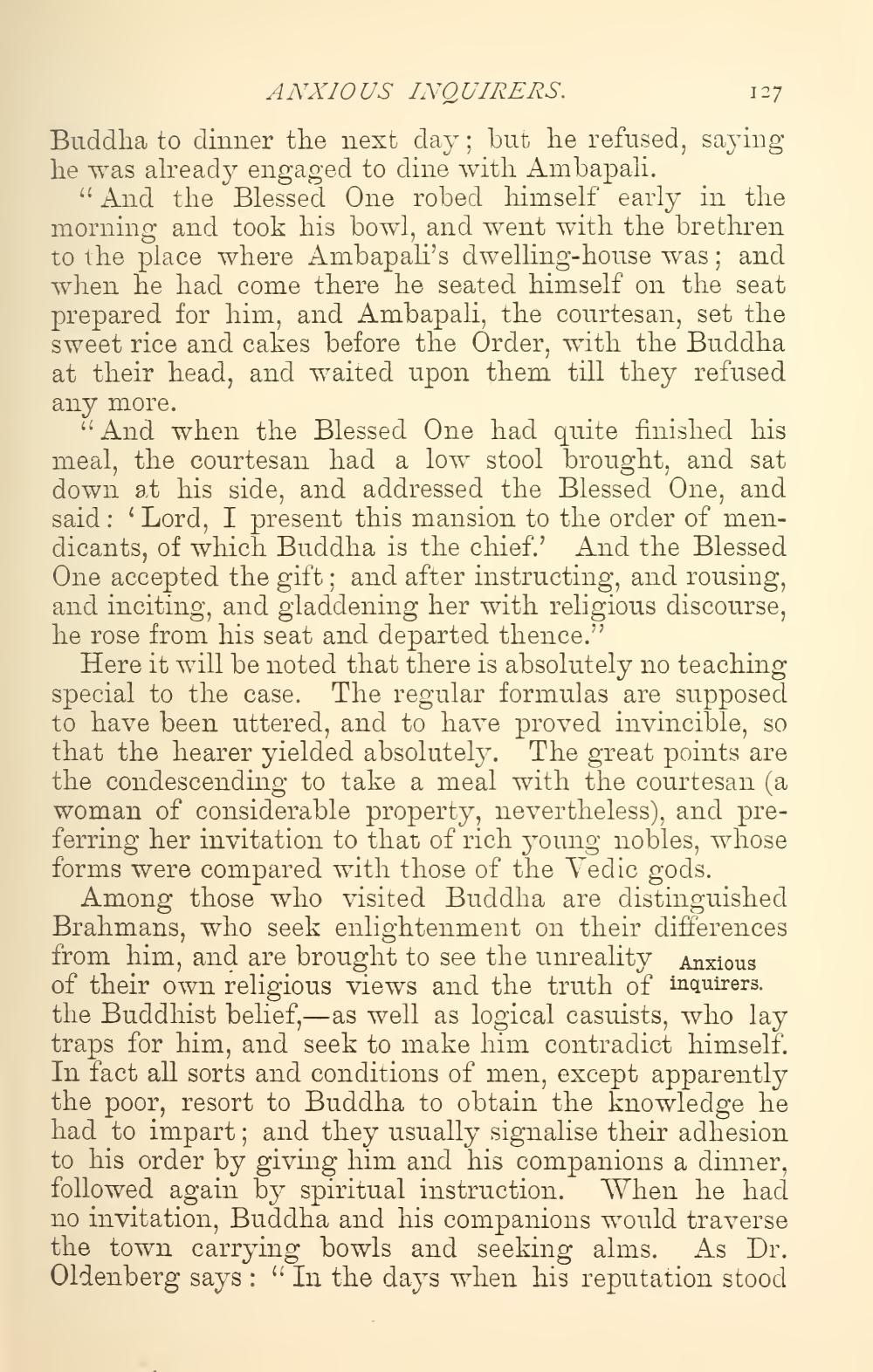________________
ANXIOUS INQUIRERS.
127 Buddha to dinner the next day; but he refused, saying he was already engaged to dine with Ambapali.
"And the Blessed One robed himself early in the morning and took his bowl, and went with the brethren to the place where Ambapali's dwelling-house was; and when he had come there he seated himself on the seat prepared for him, and Ambapali, the courtesan, set the sweet rice and cakes before the Order, with the Buddha at their head, and waited upon them till they refused any more.
And when the Blessed One had quite finished his meal, the courtesan had a low stool brought, and sat down at his side, and addressed the Blessed One, and said: 'Lord, I present this mansion to the order of mendicants, of which Buddha is the chief. And the Blessed One accepted the gift; and after instructing, and rousing, and inciting, and gladdening her with religious discourse, he rose from his seat and departed thence."
Here it will be noted that there is absolutely no teaching special to the case. The regular formulas are supposed to have been uttered, and to have proved invincible, so that the hearer yielded absolutely. The great points are the condescending to take a meal with the courtesan (a woman of considerable property, nevertheless), and preferring her invitation to that of rich young nobles, whose forms were compared with those of the Vedic gods.
Among those who visited Buddha are distinguished Brahmans, who seek enlightenment on their differences from him, and are brought to see the unreality Anxious of their own religious views and the truth of inquirers. the Buddhist belief, as well as logical casuists, who lay traps for him, and seek to make him contradict himself. In fact all sorts and conditions of men, except apparently the poor, resort to Buddha to obtain the knowledge he had to impart; and they usually signalise their adhesion to his order by giving him and his companions a dinner, followed again by spiritual instruction. When he had no invitation, Buddha and his companions would traverse the town carrying bowls and seeking alms. As Dr. Oldenberg says: “In the days when his reputation stood




